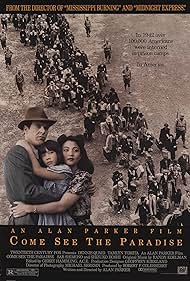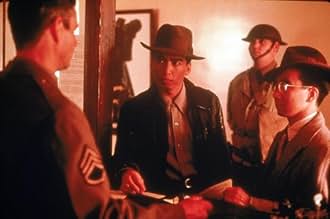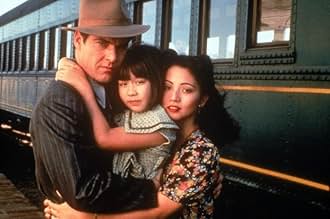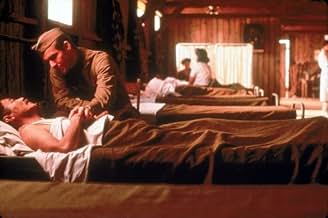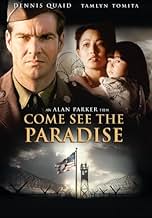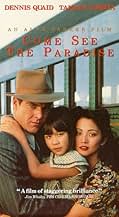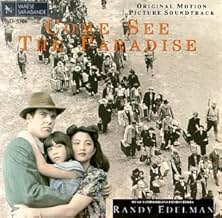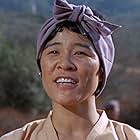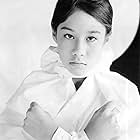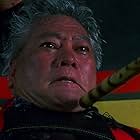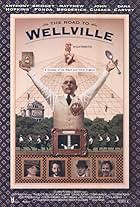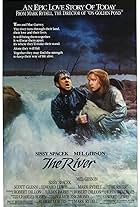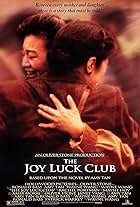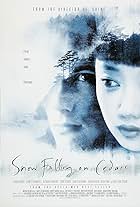The passionate romance between an Irish-American man and a Japanese-American woman is threatened when the Pearl Harbor attacks happen and the woman is forced into a prison camp because of he... Read allThe passionate romance between an Irish-American man and a Japanese-American woman is threatened when the Pearl Harbor attacks happen and the woman is forced into a prison camp because of her ethnicity.The passionate romance between an Irish-American man and a Japanese-American woman is threatened when the Pearl Harbor attacks happen and the woman is forced into a prison camp because of her ethnicity.
- Awards
- 3 nominations
- Director
- Writer
- All cast & crew
- Production, box office & more at IMDbPro
Storyline
Did you know
- TriviaThe movie ranks at the No. #1 spot on the top 10 list of most Oscar-bait movies ever made according to research by UCLA sociologists Gabriel Rossman and Oliver Schilke. According to website 'Wikipedia', this movie is "the most deliberate example of Oscar bait in their study of 3,000 films released since 1985. The identification is based on various elements calculated to be likely to draw Oscar nominations, including the previous nominations of [Alan] Parker, the film's setting in Hollywood (including Quaid's projectionist character), and its depiction of a tragic historical event against the background of war and racism. It was only released in a few cities during the last week of that year to make it eligible for the awards. However, it was not nominated for any Oscars and failed at the box office".
- GoofsDuring the destroying Japanese businesses scene, the "I am an American" sign is printed as if from a professional printers, however, it's entirely possible that people had signs professionally printed.
- Quotes
[first lines]
Older Mini McGann: Why are we so early?
Lily Yuriko Kawamura: It's good to be early.
Older Mini McGann: Do you ever worry that you won't recognize him, Mama?
Lily Yuriko Kawamura: You recognize me, don't you?
Older Mini McGann: Well, he might have grown a beard or a moustache or something. And I was so little. I only think I remember him. Do you think he'll remember me?
Lily Yuriko Kawamura: Well, he has all your photographs and all the letters you wrote him, and he has all your school reports
Older Mini McGann: You sent him my school reports?
Lily Yuriko Kawamura: Of course I did. I wanted to let him know how well you were doing. Come on, now. I got some tea and rice cakes here. We'll have a nice talk while we're walking, okay? Let's go.
Older Mini McGann: How far do we have to walk?
Lily Yuriko Kawamura: Not far.
Older Mini McGann: If we have so much time, then why are you walking so fast? I shouldn't have worn these new shoes. I think I have a blister. Mama!
[speaks in Japanese]
Lily Yuriko Kawamura: [replies in Japanese] Try not to think about it. You want to look pretty, don't you?
Older Mini McGann: Can we talk about Papa?
Lily Yuriko Kawamura: Okay.
- Crazy creditsThe 20th Century Fox logo does not have the fanfare on it.
- SoundtracksKawamura Family Theme
Written by Jake Parker and Alan Parker
However, the difficulty I have with the film concerns--as other reviewers have noted--a wandering and unfocused script. Although Alan Parker allows for an accurate (for the most part) and revealing look at life in the internment camps, we rarely see anything from Jack's (Dennis Quaid) perspective. What happened to him after he went AWOL? How long were they apart? Also, the difficulties that everyone had with the marriage between Lily and Jack are resolved without any discussion. She simply comes home from Seattle and all is forgiven? The cultural tensions and familial disputes were left behind in favor of a highly politicized second half.
In order to fit in the family conflicts and internment episodes, the romance between Lily and Jack is hastened to the point of non-existence in the second half hour. Therefore the audience had little reason to dread their eventual separation, and rejoice in their ultimate reunion.
Finally, on an historical note, the Supreme Court case Korematsu vs. U.S. (1944) upheld the constitutionality of the internment camps. The movie portrayed a victorious Supreme Court decision that allowed for all internees to return to freedom. However, the US government did not officially recognize the unconstitutionality of Executive Order 9066 until 1988, with a Congressional apology and restitution.
Overall, because of the highly-charged emotional potential of the subject matter, I had expected a film with a little more feeling. And if a director/writer is going to make a political movie to illuminate a dark period of American history, he should at least get his facts straight.
Salome
- How long is Come See the Paradise?Powered by Alexa
Details
- Release date
- Country of origin
- Languages
- Also known as
- Komm und sieh das Paradies
- Filming locations
- Production company
- See more company credits at IMDbPro
Box office
- Budget
- $17,500,000 (estimated)
- Gross US & Canada
- $947,306
- Opening weekend US & Canada
- $65,532
- Dec 25, 1990
- Gross worldwide
- $947,306
- Runtime2 hours 18 minutes
- Color
- Sound mix
- Aspect ratio
- 1.85 : 1
Contribute to this page

